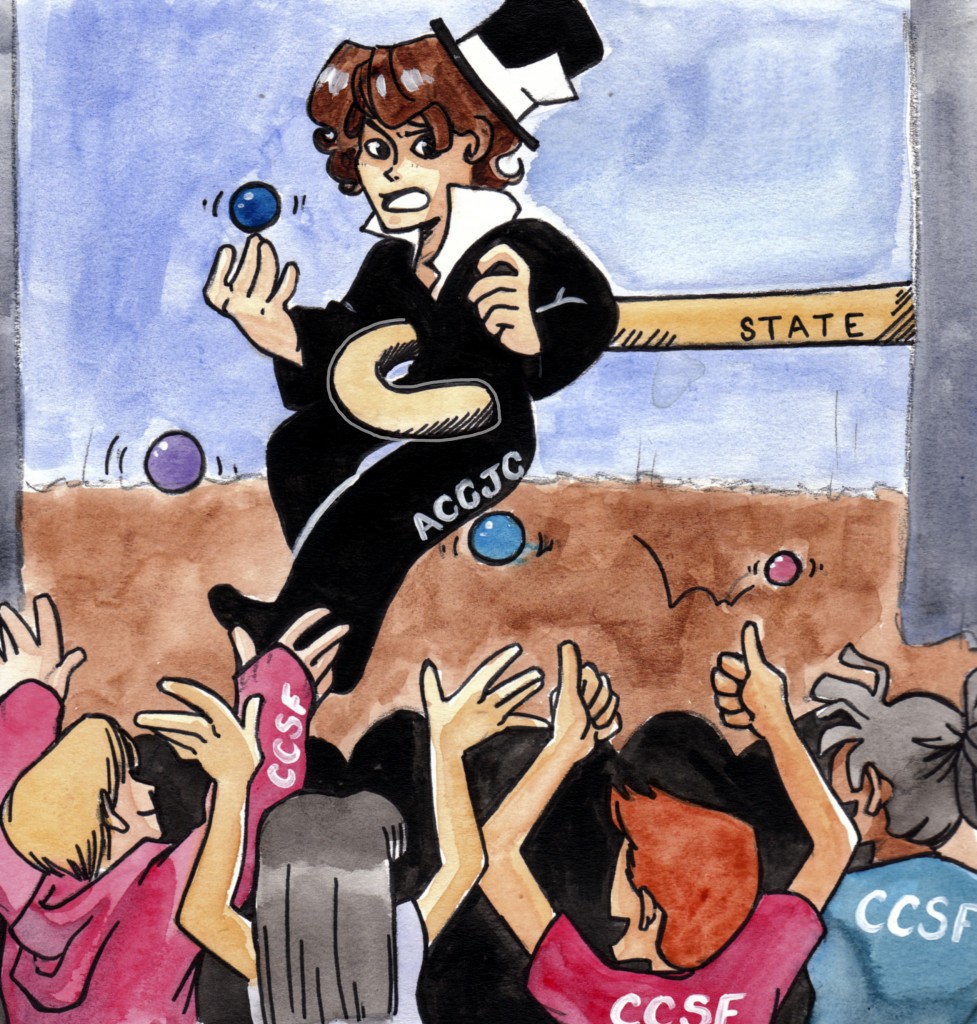State CC Chancellor To Seek New Accrediting Agency
UPDATE

By Audrey Garces/Staff Writer
The California Community Colleges Board of Governors unanimously voted for a resolution stating they have lost confidence in the Accrediting Commission for Community and Junior Colleges.
California Community Colleges Chancellor Brice Harris is now tasked to establish a transitional timeline and new accrediting model to replace the accreditor.
“There is widespread agreement among faculty, staff, trustees and other leaders within our system that the current accreditation process needs significant improvement,” board president Geoffrey Baum said in a statement after the vote. “We look forward to examining a proposal for change early next year.”
Chancellor Harris and the board will recommend a potential model or agency to replace the accrediting commission by spring 2016, but the Department of Education will have to approve and recognize the new agency in order for the transition to be made.
“It would take a number of years to migrate all 133 colleges to a new accreditor,” Vice Chancellor of Communications of the California Community Colleges Chancellor’s Office Paul Feist said.
Feist explained Colleges currently under sanctions, such as City College, would not be able to switch to a new accreditor until those sanctions are resolved.
Many faculty and students at City College view a slow transition process as unfair, especially since the academic quality of their school has never been doubted by the accrediting commission.
“The damage they have created at the college going forward has just been terrible, so they need to be held accountable,” American Federation of Teachers Local 2121 President Tim Killikelly said. “We need to get people in there who really know how to do the job rather than the arbitrary, ridiculous folks who are there now.”
The board’s vote launched extensive research by the staff of the chancellor’s office to seek out a suitable accrediting model to outline during their next meeting in March, according to Feist.
Steve Kinsella, chair of the accrediting commission, spoke out before the board’s vote and said the task force report contained dated information that did not consider improvements in standards and policies made by commissioners over the past few years.
“If you think you’re getting away from regulatory compliance, I think you’re mistaken,” Kinsella said.
History
The Accrediting Commission for Community and Junior Colleges threatened to revoke City College’s accreditation in 2013, but a lawsuit filed against the agency pushed them to sanction the school under “show cause” instead, giving City College two years to prove it meets financial and administrative standards.
If City College does not meet the commission’s standards by fall of 2017, the agency will revoke their accreditation, leaving City College without public funding and consequently having to shut down.
The Board of Governors’ recent vote was provoked by a 270-page report released by a state task force who deemed the accrediting commission unfit to oversee California community colleges, and explained ideal attributes of a new accrediting agency.
This investigation was in response to a state audit of the ACCJC in 2013 stating the agency acts inconsistently. The report released in August called for an accreditor’s emphasis on improvement rather than compliance, and suggested they provide schools with a “reasonable opportunity” to make these advancements.
The accrediting commission sanctioned 53 percent of its 113 colleges in stark contrast to agencies in other regions who averaged a 12 percent sanction rate.
The commission held several listening sessions since the report was released to discuss the task force’s findings and take comments from commission-member institutions. Following their first listening session on Oct. 9, the commission released an official response to the meeting.
“Commissioners expressed appreciation for the efforts extended by those providing comments noting the benefit of these exchanges for identifying areas in which ACCJC can be responsive to the field,” the commission’s statement said.
The accrediting commission said it will plan more listening sessions in 2016 to further discussions on this matter.
Contact a reporter
Send an email to: Audrey Garces

Comments are closed.